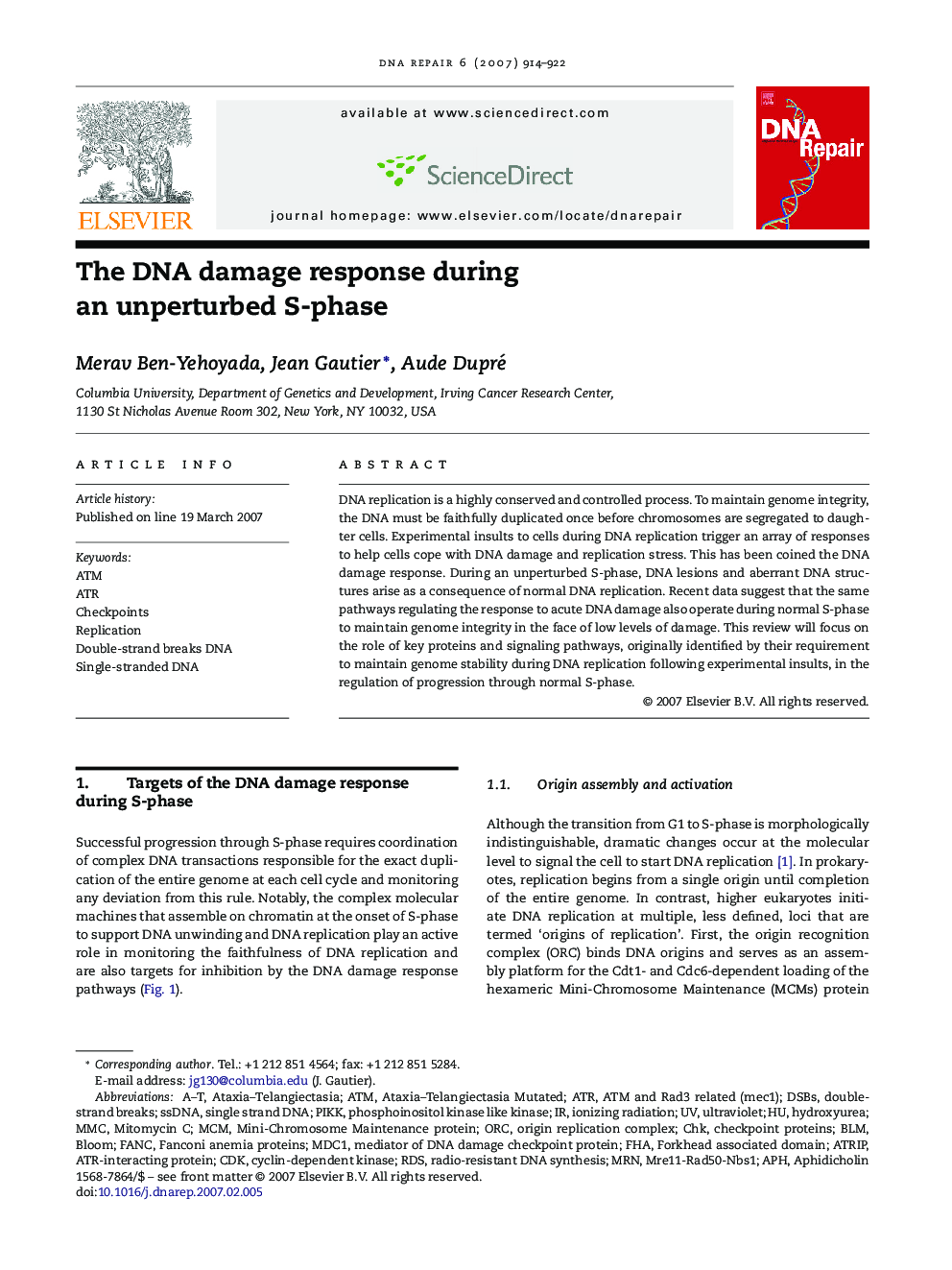| Article ID | Journal | Published Year | Pages | File Type |
|---|---|---|---|---|
| 1980985 | DNA Repair | 2007 | 9 Pages |
Abstract
DNA replication is a highly conserved and controlled process. To maintain genome integrity, the DNA must be faithfully duplicated once before chromosomes are segregated to daughter cells. Experimental insults to cells during DNA replication trigger an array of responses to help cells cope with DNA damage and replication stress. This has been coined the DNA damage response. During an unperturbed S-phase, DNA lesions and aberrant DNA structures arise as a consequence of normal DNA replication. Recent data suggest that the same pathways regulating the response to acute DNA damage also operate during normal S-phase to maintain genome integrity in the face of low levels of damage. This review will focus on the role of key proteins and signaling pathways, originally identified by their requirement to maintain genome stability during DNA replication following experimental insults, in the regulation of progression through normal S-phase.
Keywords
Related Topics
Life Sciences
Biochemistry, Genetics and Molecular Biology
Biochemistry
Authors
Merav Ben-Yehoyada, Jean Gautier, Aude Dupré,
